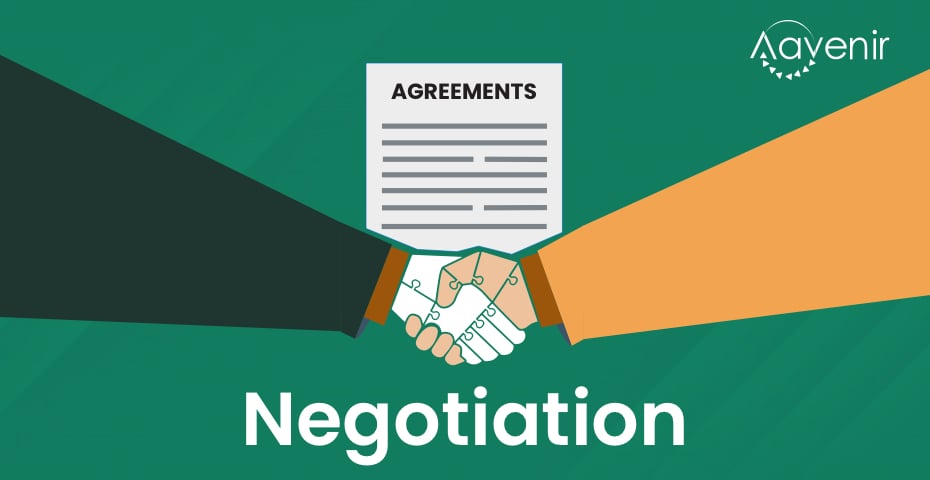Contract Negotiation Explained: How to Successfully Negotiate Contracts
Negotiation is an interactive process between two or more negotiators or parties seeking to find common ground on issues of mutual interest, where the negotiators or parties seek to make a mutually acceptable agreement that will be honored by all.
Understanding Negotiation
Negotiation is a method by which people settle differences. It is a process by which compromise or agreement is reached while avoiding argument and dispute.
In any disagreement, individuals understandably aim to achieve the best possible outcome for their position (or perhaps an organization they represent). However, the principles of fairness, seeking mutual benefit, and maintaining a relationship are the keys to a successful outcome.
Elements of Negotiation

Most people are not natural-born negotiators. The good news is that research consistently shows that most people can significantly improve their negotiation skills through education, preparation, and practice.
The Seven Elements framework describes the essential tools needed to identify our goals, prepare effectively to minimize surprises, and take advantage of opportunities as they arise in negotiation.
Download: Contract Review and Negotiation Checklist
Here, we overview the seven elements:
- Interests: Interests are “the fundamental drivers of negotiation,”—our basic needs, wants, and motivations. Often hidden and unspoken, our interests nonetheless guide what we do and say. Experienced negotiators probe their counterparts’ stated positions to better understand their underlying interests.
- Legitimacy: The quest for a legitimate, or fair, deal drives many of our decisions in negotiations. If you feel the other party is taking advantage of you, you are likely to reject their offer, even if it would leave you objectively better off. To succeed in negotiation, we need to put forth proposals that others will view as legitimate and fair.
- Relationships: Whether you have an ongoing connection with a counterpart or don’t think you’ll ever see her again, you need to effectively manage your relationship as your negotiation unfolds. Relationship dynamics become all the more important when you have an ongoing connection: future business, your reputation, and your relationships with others may hang in the balance. You can strengthen the relationship by taking the time to build rapport and by meeting your own high ethical standards throughout the process.
- Alternatives and BATNA: Even as we take part in negotiations, we are aware of our alternatives away from the table—what we will do if the current deal doesn’t pan out. Negotiation preparation should include an analysis of your BATNA, or best alternative to a negotiated agreement.
- Options: In negotiations, options refer to any available choices parties might consider to satisfy their interests, including conditions, contingencies, and trades. Because options tend to capitalize on parties’ similarities and differences, they can create value in negotiation and improve parties’ satisfaction.
- Commitments: In negotiations, a commitment can be defined as an agreement, demand, offer, or promise made by one or more parties. A commitment can range from an agreement to meet at a particular time and place to a formal proposal to a signed contract.
- Communication: Whether you are negotiating online, via phone, or in person, you will take part in a communication process with the other party or parties. The success of your negotiation can hinge on your communication choices, such as whether you threaten or acquiesce, brainstorm jointly or make firm demands, make silent assumptions about interests or ask questions to probe them more deeply.

